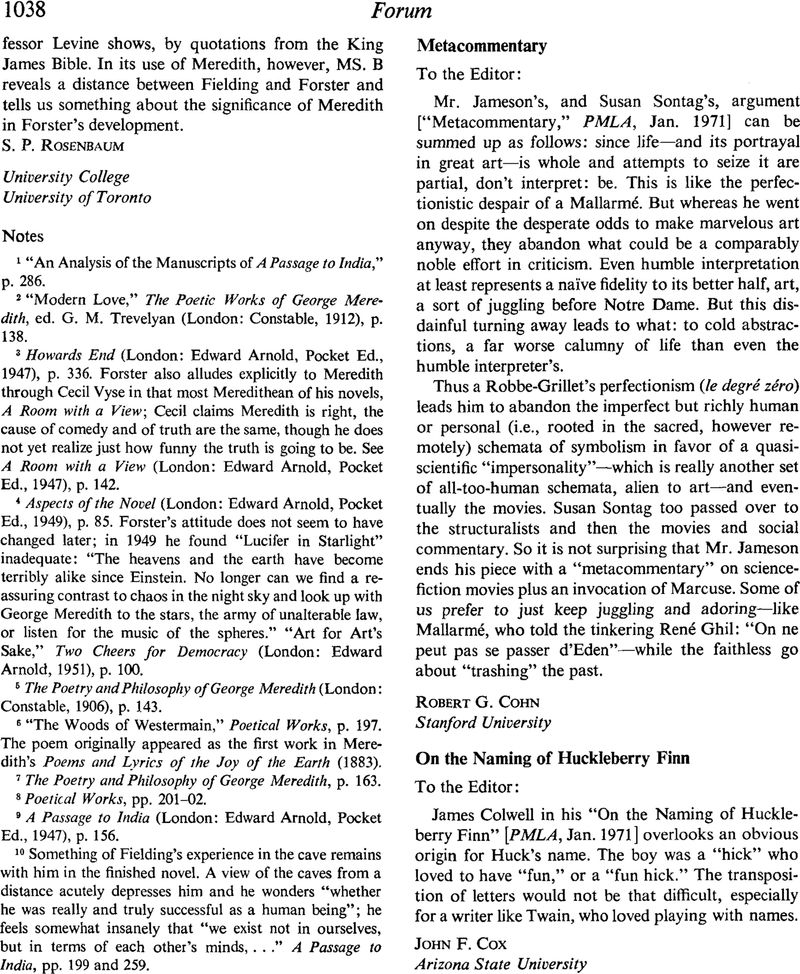No CrossRef data available.
Article contents
Metacommentary
Published online by Cambridge University Press: 01 December 2020
Abstract

- Type
- Forum
- Information
- Copyright
- Copyright © Modern Language Association of America, 1971
References
Notes
Note 1 in page 1038 “An Analysis of the Manuscripts of A Passage to India,” p. 286.
Note 2 in page 1038 “Modern Love,” The Poetic Works of George Meredith, ed. G. M. Trevelyan (London: Constable, 1912), p. 138.
Note 3 in page 1038 Howards End (London: Edward Arnold, Pocket Ed., 1947), p. 336. Forster also alludes explicitly to Meredith through Cecil Vyse in that most Meredithean of his novels, A Room with a View; Cecil claims Meredith is right, the cause of comedy and of truth are the same, though he does not yet realize just how funny the truth is going to be. See A Room with a View (London: Edward Arnold, Pocket Ed., 1947), p. 142.
Note 4 in page 1038 Aspects of the Novel (London: Edward Arnold, Pocket Ed., 1949), p. 85. Forster's attitude does not seem to have changed later; in 1949 he found “Lucifer in Starlight” inadequate: “The heavens and the earth have become terribly alike since Einstein. No longer can we find a reassuring contrast to chaos in the night sky and look up with George Meredith to the stars, the army of unalterable law, or listen for the music of the spheres.” “Art for Art's Sake,” Two Cheers for Democracy (London: Edward Arnold, 1951), p. 100.
Note 5 in page 1038 The Poetry and Philosophy of George Meredith (London: Constable, 1906), p. 143.
Note 6 in page 1038 “The Woods of Westermain,” Poetical Works, p. 197. The poem originally appeared as the first work in Meredith's Poems and Lyrics of the Joy of the Earth (1883).
Note 7 in page 1038 The Poetry and Philosophy of George Meredith, p. 163.
Note 8 in page 1038 Poetical Works, pp. 201–02.
Note 9 in page 1038 A Passage to India (London: Edward Arnold, Pocket Ed., 1947), p. 156.
Note 10 in page 1038 Something of Fielding's experience in the cave remains with him in the finished novel. A view of the caves from a distance acutely depresses him and he wonders “whether he was really and truly successful as a human being”; he feels somewhat insanely that “we exist not in ourselves, but in terms of each other's minds, …” A Passage to India, pp. 199 and 259.


